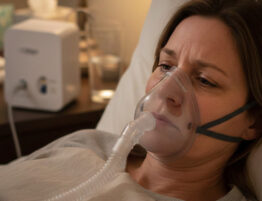This trauma can have significant and lasting consequences on health. These injuries occur when a sudden force causes the brain to move rapidly within the skull. It disrupts normal brain function. Symptoms like headaches, dizziness, and confusion may subside within days or weeks. However, the impact on long-term well-being is increasingly recognized.
Understanding how concussions affect the brain is crucial for athletes, doctors, and policymakers. The awareness of the issue grows. So, it’s essential to investigate the potential risks associated with repeated problems. It’s particularly in sports and occupations where head injuries are common.
By exploring these complex health issues, we can develop effective strategies for:
- Prevention.
- Evaluation.
- Treatment.
It ultimately boosts the quality of life for people affected by these injuries.
Understanding How Concussions Affect the Brain
Even a mild concussion can have a significant impact on brain function. Immediately after an issue, people may experience a range of symptoms. It includes:
- Memory loss. Difficulty remembering events.
- Confusion. Disorientation and trouble understanding surroundings.
- Headaches. Throbbing or pounding ache in the head.
- Dizziness. A sensation of spinning or lightheadedness.
- Nausea and vomiting. Digestive upset.
- Sensitivity to light and sound. Increased discomfort from visual and auditory stimuli.
- Sleep disturbances. Insomnia or excessive sleepiness.
These symptoms occur as the brain attempts to recover from the disruption. The normal communication pathways between cells may be temporarily impaired. This can lead to difficulties with information processing, memory recall, and overall cognitive function.
Concussions and Their Long-Term Impact on Mental Health
Concussions can also affect mental health. People who have experienced a concussion may be more likely to develop:
- Anxiety. Excessive worry and fear.
- Depression. Persistent sadness and hopelessness.
- Mood changes. Rapid and unpredictable changes in emotion.
- Irritability. Increased anger and frustration.
- PTSD. Flashbacks, nightmares, and hypervigilance.
The relationship between head injury and mental disorders is complex. And it’s not fully understood. Repeated injury may increase the risk of developing mental issues. It’s particularly in people who are already predisposed to such issues.
Sinus Complications After a Concussion
Can a concussion affect your sinuses? It primarily affects the brain. However, it can also indirectly cause sinus problems. The injury can disrupt the normal balance of pressure. It usually leads to:
- Headaches. Pain in the forehead, temples, or behind the eyes.
- Dizziness. A sensation of spinning or lightheadedness.
- Sinus pressure. A feeling of fullness or heaviness in the sinuses.
- Facial pain. Tenderness or discomfort in the cheeks or jaw.
- Congestion. Nasal stuffiness and difficulty breathing.
It is important to note that complications after an injury are often temporary. And they can be managed with over-the-counter meds or decongestants. However, if symptoms persist or worsen, it is advisable to consult with a doctor.
Lasting Impact of Concussions on Cognitive Abilities
Now, let’s talk about how concussions affect the brain long-term. They can have a significant and long-lasting impact on cognitive abilities. Many people may experience initial symptoms such as headaches, dizziness, and memory loss. However, these effects can persist or even worsen over time.
One of the most common long-term side-effects is mental impairment. People may struggle with tasks that need:
- Memory. Difficulty recalling events, names, or facts.
- Focus. Inability to focus on tasks or maintain attention.
- Decision-making. Challenges in making informed choices or solving problems.
- Processing speed. Slower info processing and response times.
In some cases, people may develop PCS. It’s a condition characterized by a constellation of symptoms that persist for weeks or months after an injury.
Most people with PCS eventually recover. However, some may experience lasting mental difficulties. In severe cases, repeated injury can lead to permanent brain damage. It includes conditions such as chronic traumatic encephalopathy. CTE is a degenerative cerebral disease. It’s associated with repeated head injury. It can result in symptoms such as memory loss, mood changes, and aggressive behavior.
Concussions and Physical Health: Beyond the Brain
The primary lasting health impact of concussions is on the brain, and managing it is vital. However, these traumas can also have significant consequences for physical health. Beyond the initial symptoms, people may experience:
- Balance issues. Difficulty maintaining equilibrium. It can increase the risk of falls and traumas.
- Chronic headaches. Persistent or recurring headaches that can significantly impact the quality of life.
- Dizziness. A sensation of spinning or lightheadedness that can interfere with daily activities.
- Neck pain. Pain or stiffness in the neck. It’s often associated with whiplash-type traumas.
- Vision problems. Blurred vision, double vision, or sensitivity to light.
- Hearing problems. Ringing in the ears or difficulty hearing.
Repeated injuries can lead to a cumulative effect on physical health. It increases the risk of long-term disabilities. People who have experienced multiple traumas may be more likely to develop:
- Chronic ache. Persistent pain in various parts of the body.
- Reduced physical function. Difficulty with tasks that require strength, coordination, or endurance.
- Increased risk of chronic issues. Higher risk of developing conditions such as heart disease, stroke, and diabetes.
Prevention and Recovery: Minimizing the Long-Term Effects
Preventing and managing lasting impact of head injuries is essential for protecting the brain. Here are some strategies to consider:
- Proper sports equipment. Athletes should wear appropriate helmets and protective gear. This helps reduce the risk of injuries.
- Head protection. In non-sporting activities, you must wear helmets when engaging in activities that could lead to injury. For example, cycling, skateboarding, or skiing.
- Awareness and education. Raising awareness about the risks of concussions and educating individuals on prevention strategies can help reduce their occurrence.
- Early evaluation and treatment. Seeking medical attention after a suspected concussion is crucial. It’s for early diagnosis and treatment. Prompt evaluation can help find potential complications and initiate appropriate recovery.
- Rest and recovery. Allowing the brain time to recover is essential after an injury. Rest, avoiding strenuous activities, and limiting screen time can aid in healing.
Rehabilitation. A comprehensive rehabilitation program can help people recover. This may include physical therapy, occupational therapy, and speech therapy.













I've given up... the stress her office staff has put me through is just not worth it. You can do so much better, please clean house, either change out your office staff, or find a way for them to be more efficient please. You have to do something. This is not how you want to run your practice. It leaves a very bad impression on your business.
Please, leave your review
Write a comment: